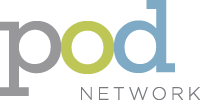This year’s conference is planned as a virtual event. The conference experience will combine live synchronous and on-demand asynchronous sessions and presentations to provide ample opportunities for engagement and participation, as well as a rich collection of presentations and resources. New conference features include workshops-in-a-box sessions (successful workshops and accompanying materials you can adapt to present at your institution), social gatherings and wellness sessions, and other live and on-demand sessions specifically designed to engage participants in a virtual environment.
Our conference theme, Evolving Beyond Crisis—Connecting to the Future invites us to reflect upon our current realities in order to identify opportunities for learning and growth and to build upon the successes we have had in responding to different crises in meaningful, sustainable, and proactive ways.
#POD21 will be a space to showcase, discuss, and grow the potential that exists among educational developers and those with similar roles as institutional leaders and change agents.
We especially look forward to advancing and deepening the conversations around diversity, equity and inclusion in our work, at our institutions, and within the POD Network. Together let’s share and build upon our collective awareness, knowledge, and capacity to evolve beyond crisis, plan for the future, and navigate change.
We can’t wait to see you in November!
Claudia Cornejo Happel, Conference Co-Chair
German Vargas Ramos, Conference Co-Chair
Tammy M. McCoy, Program Co-Chair
Jerod Quinn, Program Co-Chair
Hoag Holmgren, POD Network Executive Director

